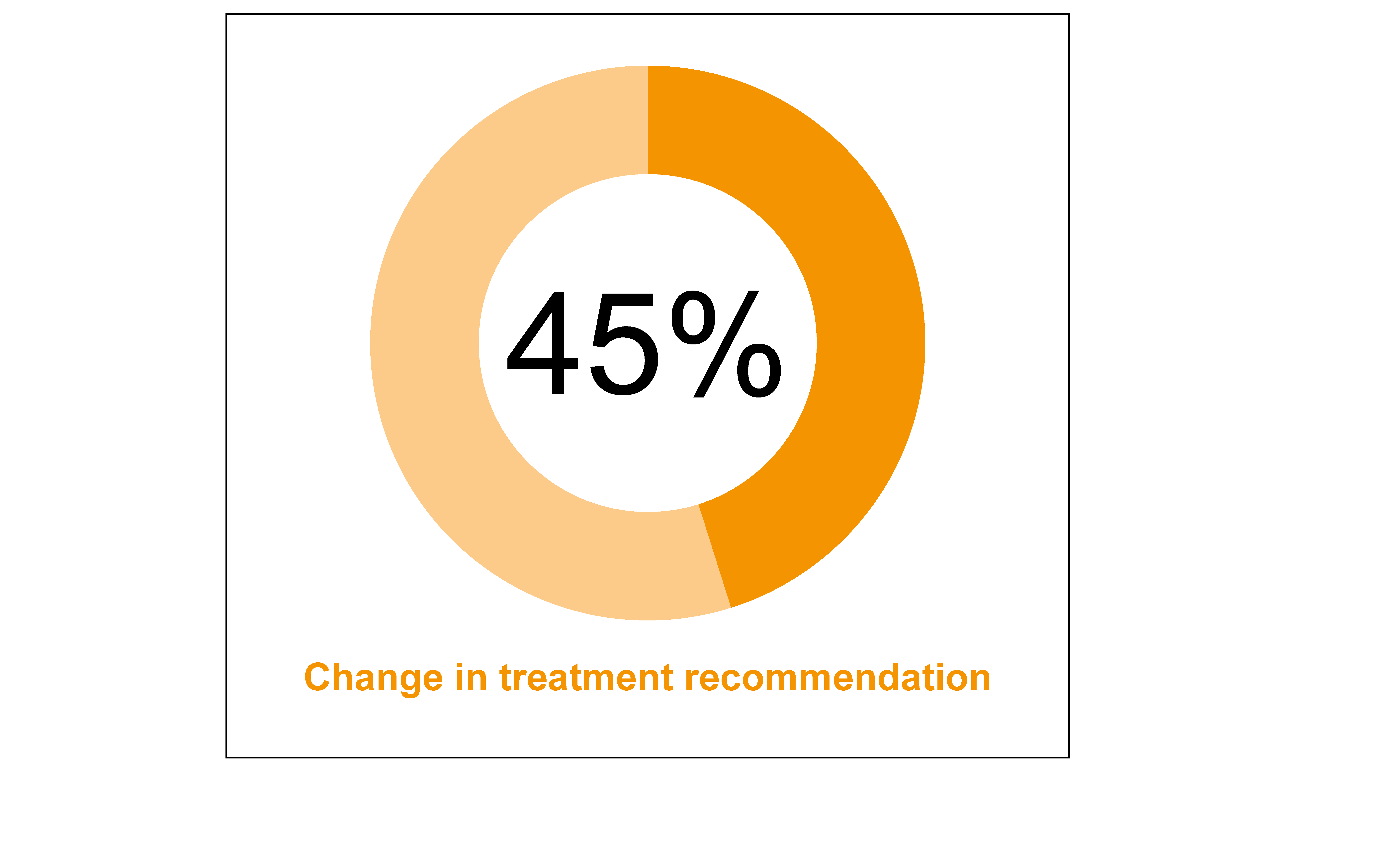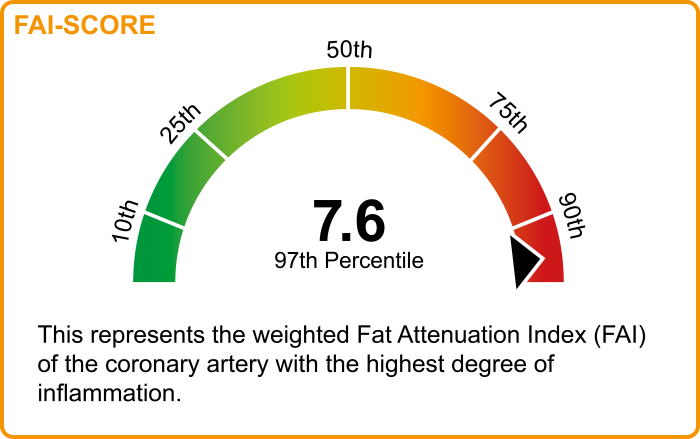
Measure coronary inflammation with CaRi-Heart FAI-Score™
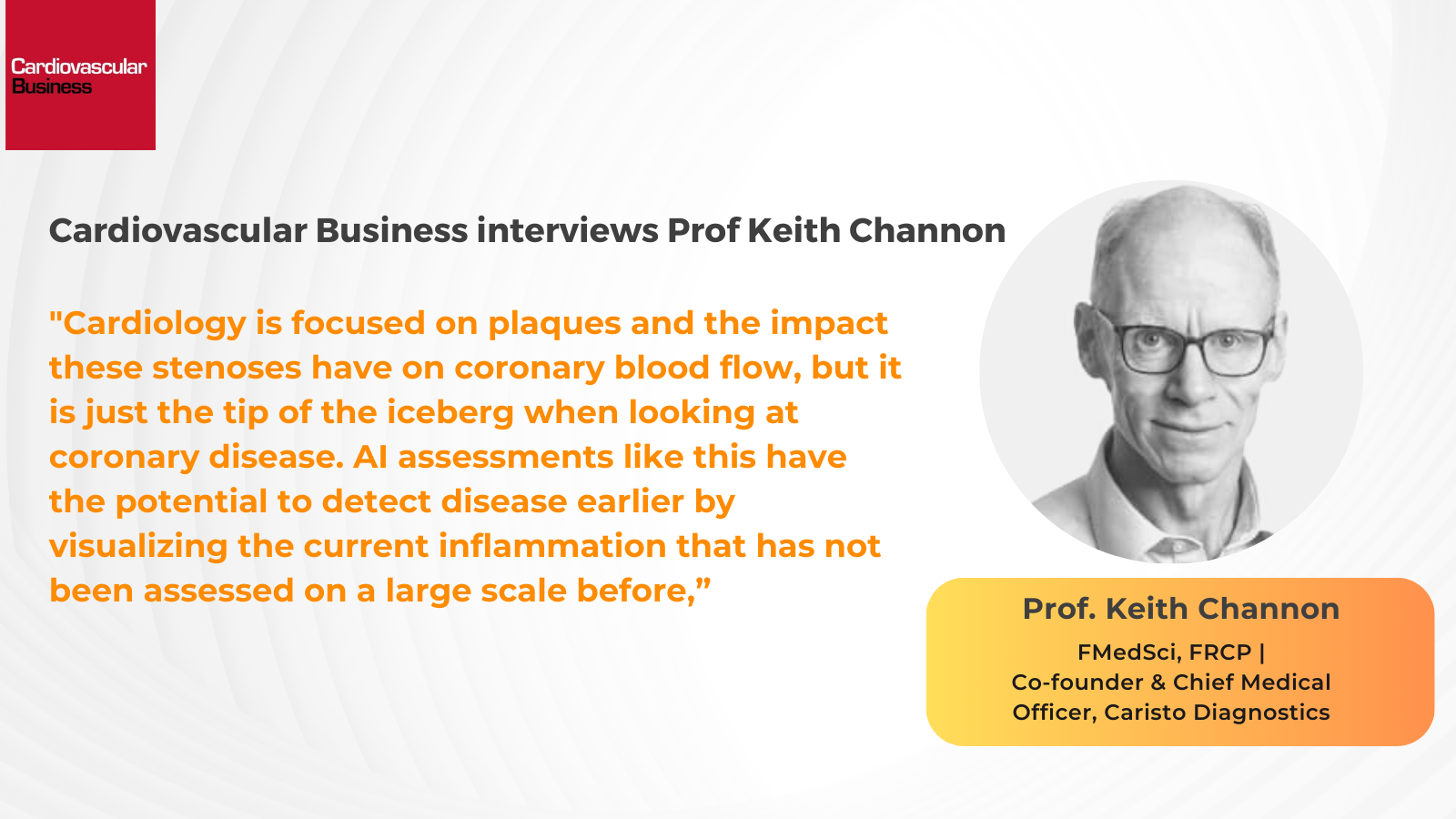
Coronary inflammation plays a critical role in atherosclerotic plaque formation and rupture by triggering a cascade of biological events (Antoniades et al. 2020, Ross 1999). Unaddressed coronary inflammation is a key residual risk for heart attacks.
Targeting inflammation reduces cardiovascular risk, as shown in several randomized trials such as CANTOS (2017), COLCOT (2019), LoDoCo2 (2020). However, current clinical pathways lack a scalable and effective way to measure coronary inflammation.
Existing biomarkers of inflammation such as high sensitivity C-reactive protein (hs-CRP) measure systemic inflammation and are not specific for coronary inflammation.
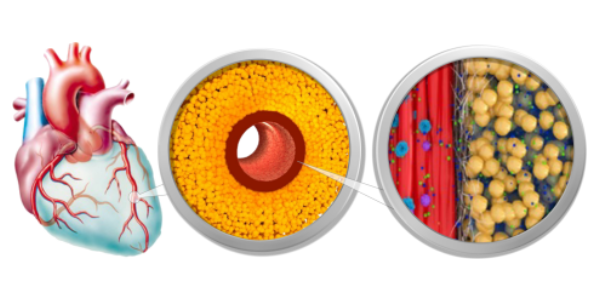
Peri-vascular adipose tissue (PVAT) is the fat that surrounds blood vessels such as coronary arteries.
PVAT cells detect chemical signals that are released when an artery is inflamed and change their structure.
This change in structure can be detected in routine (CCTA).
PVAT is therefore a naturally occurring “biosensor” for coronary inflammation.
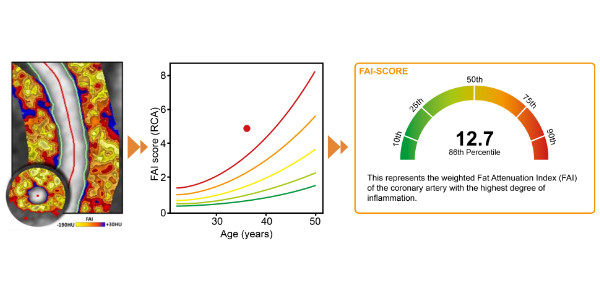
The FAI-Score is Caristo’s proprietary method for measuring the change in structure in the PVAT using routine CCTA.
The Fat Attenuation Index (FAI) is a measure of the radiodensity of the PVAT and the FAI-Score corrects this for anatomical, biological and technical factors to provide a standardised biomarker of coronary inflammation.
CaRi-Heart Risk integrates the FAI-Score with plaque burden and clinical risk factors to provide a personalised risk of a fatal cardiac event.
